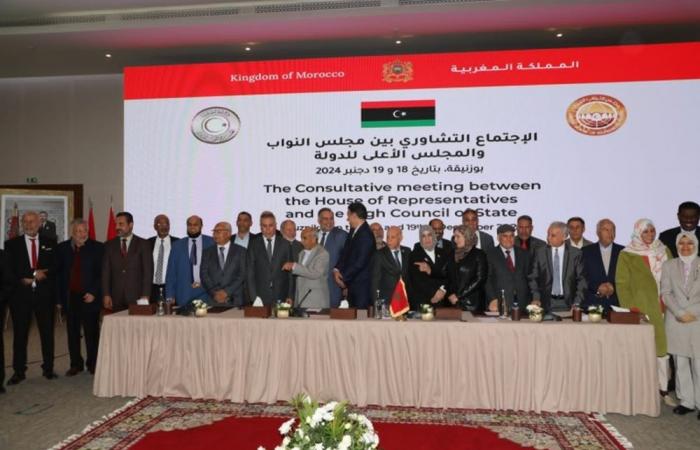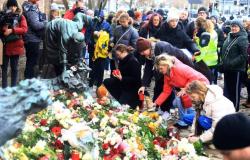The House of Representatives and the High Council of State agreed to continue their joint meetings to promote national reconciliation.
On the Atlantic coast of Morocco, in Bouznika, between Rabat and Casablanca, a new major stage in the intra-Libyan dialogue was held, bringing together representatives of the Libyan House of Representatives and the High Council of State. These talks, facilitated by the Kingdom of Morocco, aim to find a lasting solution to the crisis that has shaken Libya for several years.
In a joint statement published on Thursday, December 19, the two Libyan institutions expressed their deep gratitude to Morocco for its “tireless efforts” in favor of peace and stability in Libya. “We reiterate our warm thanks and our immense gratitude to the Kingdom of Morocco, the King, the government and the people for the hospitality, the warm welcome and the great support given to the Libyan people,” underlines the text.
The meeting in Bouznika brought together 120 participants, testifying to the desire of the Libyan factions to give new impetus to the political process. The main objective: to lay the foundations for free and transparent legislative and presidential elections. These talks are part of the continuity of efforts made by Morocco since the Skhirat meetings in 2015, which led to the Skhirat Agreement, providing for the formation of a Presidential Council and the establishment of unification mechanisms institutions.
The final communiqué emphasized the importance of national reconciliation and consultation between factions. Both sides agreed to continue meeting to establish a common roadmap to peacefully resolve the crisis. They also highlighted the need to promote transparency, accountability and respect for skills in appointment and governance processes.
An electoral process at the heart of the solution
Participants committed to organizing elections based on the so-called “6+6” laws, adopted by official institutions and recognized by United Nations Security Council resolutions. These laws constitute an essential legal framework to ensure the credibility and transparency of the electoral process, which is seen as the essential path towards lasting stabilization.
During a press conference held the previous Wednesday, Moroccan Foreign Minister Nasser Bourita reaffirmed Morocco’s firm commitment to supporting the inter-Libyan dialogue. “We believe that the Libyan dialogues can only succeed in the absence of foreign interventions,” he said, while calling on regional actors and global powers to respect the will of the Libyan people.
Morocco continues to play a decisive role in this process, leveraging its position of neutrality and its diplomatic expertise. By hosting these talks, it demonstrates a sincere desire to contribute to peace and stability in a region beset by complex tensions.
MK/ac/APA






